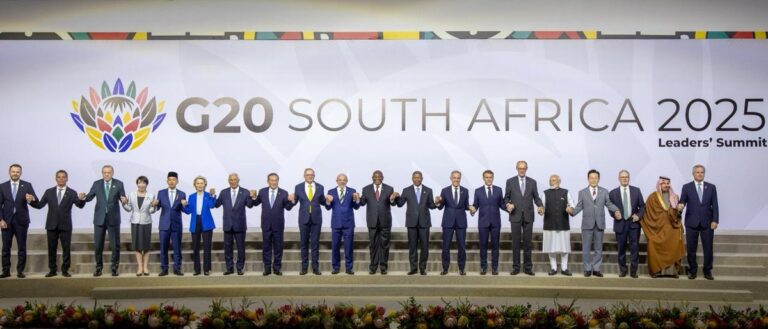
SCO Summit Adopts Document to Combat Radicalization (Photo Source: president.uz)
At the SCO summit held under the chairmanship of India on Tuesday, members of the SCO banded together to tackle the pressing challenge of radicalisation and its links with terrorism, separatism and extremism.
In a separate declaration, SCO members committed to strengthen cooperation in the fight against radical ideologies and the prevention of violent extremism in the region. The declaration said that the aim of the cooperation is to promote peace, stability and security among the member states.
The SCO member states expressed their commitment to combating radicalization by sharing experiences and best practices in accordance with the SCO Charter and universally accepted principles of international law. Recognizing the need for regional cooperation, they stressed the importance of denying the means and opportunities for individuals supporting radical activities.
One of the key initiatives highlighted in the declaration is the implementation of media campaigns at the national level to prevent and counter radicalization leading to terrorism, extremism, and separatism. By leveraging the power of media, member states aim to raise awareness, disseminate accurate information, and discourage the spread of radical ideologies.
India, in its role as the summit’s host, received significant support from Russia and Central Asian partners for spearheading the effort to address radicalization within the SCO. The member states collectively agreed to exchange practical experiences on ensuring the security of major international events hosted within their territories. This exchange of knowledge will contribute to more effective security measures and help prevent any potential threats associated with such events.
To tackle the issue of radicalization comprehensively, member states also pledged to implement national-level programs aimed at rehabilitating and reintegrating individuals who have been radicalized back into society. By providing support and avenues for reintegration, the SCO aims to prevent the recurrence of radical ideologies and any potential involvement in terrorist activities.
The summit further emphasized the importance of various stakeholders, including the media, civil society, business community, and religious, cultural, educational, and other organizations, in shaping an environment conducive to preventing and countering radicalization. These entities play a vital role in promoting understanding, tolerance, and dialogue within societies.
The role of women and youth in countering radicalization was also recognized as significant. The summit underscored the importance of empowering women and involving young people in efforts to combat radical ideologies and promote peace and stability.
Furthermore, the SCO members pledged joint efforts to block and remove radical and terrorist content from the Internet. Recognizing the role of online platforms in the dissemination of extremist material, the member states committed to working together to ensure a safe and secure cyberspace that does not provide a breeding ground for radicalization and terrorist activities.
The SCO summit’s declaration on de-radicalization marks a significant step in strengthening regional cooperation and countering the threats posed by radical ideologies. The collaborative efforts outlined in the document demonstrate the commitment of SCO member states to ensuring peace, stability, and security in the region.
By sharing experiences, implementing national programs, and involving various stakeholders, the SCO aims to effectively address the complex challenges of radicalization and terrorism.






